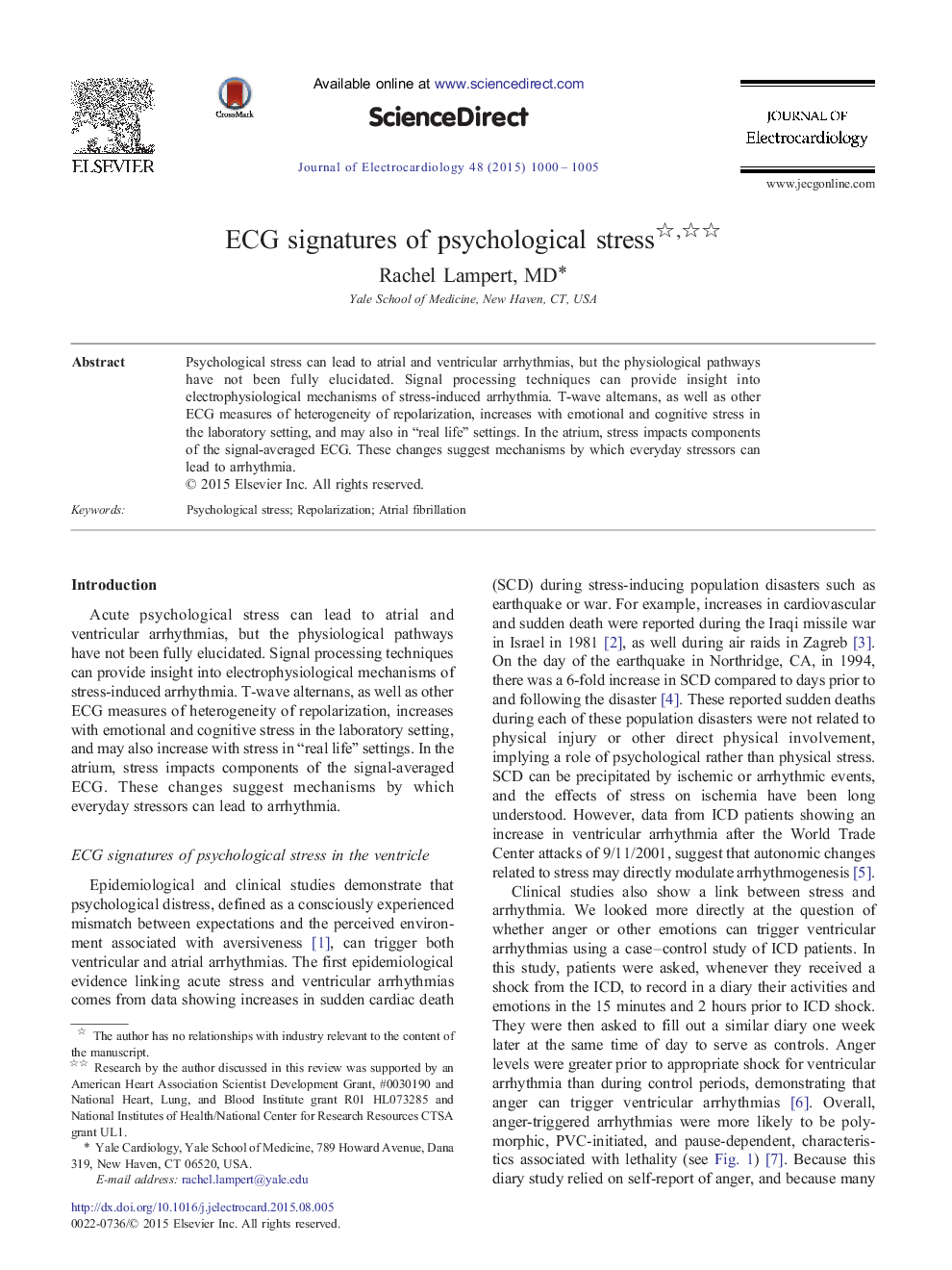| Article ID | Journal | Published Year | Pages | File Type |
|---|---|---|---|---|
| 2967377 | Journal of Electrocardiology | 2015 | 6 Pages |
Abstract
Psychological stress can lead to atrial and ventricular arrhythmias, but the physiological pathways have not been fully elucidated. Signal processing techniques can provide insight into electrophysiological mechanisms of stress-induced arrhythmia. T-wave alternans, as well as other ECG measures of heterogeneity of repolarization, increases with emotional and cognitive stress in the laboratory setting, and may also in “real life” settings. In the atrium, stress impacts components of the signal-averaged ECG. These changes suggest mechanisms by which everyday stressors can lead to arrhythmia.
Related Topics
Health Sciences
Medicine and Dentistry
Cardiology and Cardiovascular Medicine
Authors
Rachel Lampert,
